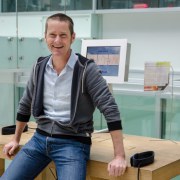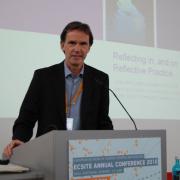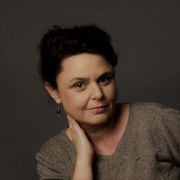Universities and research bodies: specific public engagement?
Find this session's presentations here.
There are 22 Universities/Research Bodies (U/RB) in the Ecsite network, out of 374 members, with only 7 universities. Outreach is a not-to-be-denied assignment for universities. But in a day to day practice “science dissemination and information” will never come first. Welcome to this session if collaboration, interaction and synergies with universities are on your agenda.
Clearly, U/RB have real strengths: privileged access to students, proximity with researchers and teachers "from the inside", access to a wealth of scientific disciplines, unique historic collections… But at the same time they may look like ugly ducklings, with a lack of facilities to welcome large audiences, seemingly narrow strategy and financial opportunities, or administrative rigour.
Why should U/RB invest in science dissemination and citizen activities?
Let's explore the following questions:
1) Can collaboration between research institutions and science centres blur the frontiers between production and sharing of knowledge?
2) How can we effectively train researchers and students for science dissemination?
3) Can science communication and institutional branding work together effectively?
4) How do science communication and informal science education overlap?
Facilitator
Head of Science/Culture Dpt
Session speakers
October 2016, Ben Feringa, professor at the Groningen science faculty was awarded the Nobel prize in Chemistry. A fantastic and hectic test case of the added value of a small - in house - science center like ours. A Nobel prize is of course exceptional, but high impact news (gravitational waves, higgs boson, Rosetta mission etc), will be there every now and then. How can we position ourselves in the future? Should we train more (young) researchers to deal with media and let 'corporate communication' handle the complex cases. Or develop advanced marketing and media skills ourselves so we can direct larger events and team up with corporate communication departments of universities? Or turn away from high impact science media events and miss opportunities to reach out to very large audiences?
Center for Advancement of Informal Science Education
Universities and science centres/museums work together in an increasing variety of ways, from providing venues where scientists engage the public with the relevance of research to creating joint appointments for faculty. Concurrently, the landscape of informal STEM institutions who have experience and capacity for working with the scientific community has expanded with the significant growth of infrastructure and networks. Let's explore the great potential for more informed, fruitful collaborations that draw on the resources and expertise that exist internationally .
Head of Communication Office
What are the similarities and differences between engaging scientists for activities in a Science Center and in a Research Institution? Having been on both sides (as director of a science center and head of communication office of a research institute) I will present my view on the subject and would like to share ideas and experiences.
I am particularly interested in strategies to involve researchers in science communication and dissemination, the tools we can provide them to become better communicators and at contributing to effective outreach activities.
Expert Associate at Center for the Promotion of Science
Center for the Promotion of Science/Institute for Human Genetics
Tackle the reasons why universities/research bodies commit to outreach activities; compare different situations (from Serbia to the US); following a brief overall introduction, focus groups will discuss one topic and report a summary. Serbia is not an EU member and doesn't have a SC as a permanent exhibition space. I will reflect on our situation&discuss the potential SC&M help (e.g.science communication training for university staff).Since I perform research at university lab I'm familiar with the lack of motivation among university staff for dedicating some time to communicating science. Let's discover what motivates them!
Universities are becoming more open to the public. They develop outreach activities to link research units and society. Science Centres are professional science communication entities that carry out programs on Science and Society. At University of Aveiro a university-based Science Centre was developed. This model involves the scientific community and science communicators working together to the development of exhibitions and to the annual program.
How to engage researchers into science communication activities and how an University takes the role of Science Centre promoter?
Dirrector of UniSci / Head of Outreach Science Communication at UI
UniSci / University of Iceland
Cross-sector and cross-subject thinking will increase in the future and boundaries we know today will disappear or fade.
Innovative and creative approaches in both informal and formal education are called for and both sectors need to step out of their comfort zones.
At the University of Iceland, participating in outreach science communication activities or collaborating with cultural and informal education institutes has become a norm for the academic staff. As well as working with all school stages. Ten years ago this was certainly not the fact. So how did we get there?
Situated on the boundary of a university Science Gallery Dublin brings the research of the university into dialogue with a wide audience both as collaborators and participants. But, why do researchers participate - is the push factor of grant requirements all that propels public engagement or are there ways that an open dialogue with different audiences can actually benefit your research. We're interested in presenting some success and learnings in this area and hearing from others on their experiences.
Director of science mediation and education
Espace des Sciences Pierre Gilles de Gennes is an hybrid between a Research Institute venue and an autonomous science centre. Our goal is to build a place which is radically hybrid: that is, it is not clear - and should not be! - wether the activities we organize there are intended to communicate science, or to do science.









